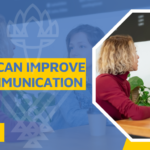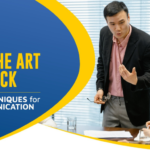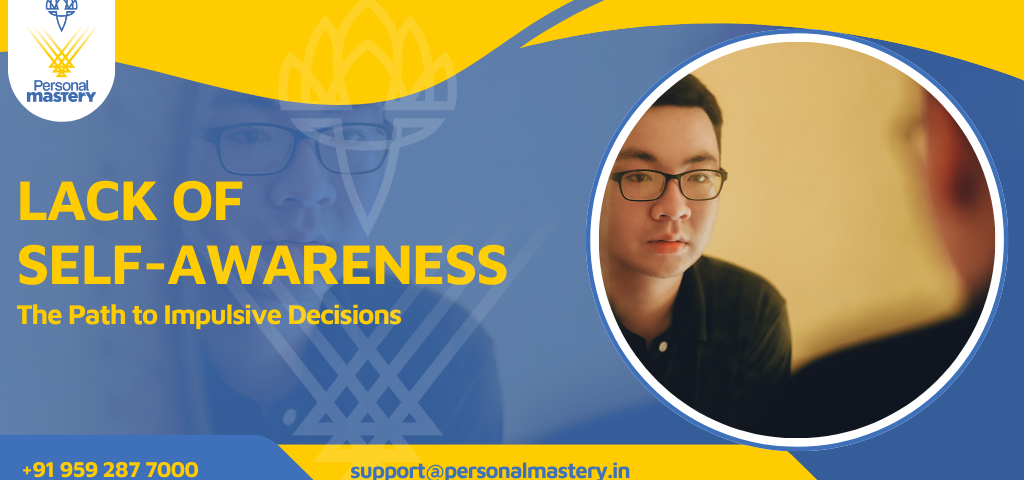
How NLP Can Improve Poor Communication Skills
November 28, 2024
Master the Art of Feedback: 10 Proven Techniques for Effective Communication
December 6, 2024In today’s world, being able to make clear and thoughtful decisions is essential for success in both personal and professional life. Often, poor decisions come from acting on emotions or impulses instead of thinking things through. This article explores how self-awareness impacts decision-making, showing how emotional intelligence, self-reflection, and self-control can lead to better choices. It also shares strategies for improving these skills and includes a real-life example of how self-awareness shapes decisions.
What is Self-Awareness, and Why Does it Matter?
Self-awareness, this article, refers to the process of observing and understanding one’s thoughts, emotions, and behaviors. Emotionally self-aware individuals are better able to recognize the difference between emotional triggers, impulses, and reasonable judgment, thus using the latter to make their decisions. Emotional intelligence becomes an enabler for it because it helps individuals connect with their innermost thoughts and manage their reactions.
Impulse, on the flip side, is a fast-acting reactionary method pending a rather temporary emotion or impulse. While a few impulsive moves result in rather imaginative or gutsy actions, many such decisions can lead to regret, wrong decisions, and negative ramifications. Train your impulsivity: be self-aware; it allows people to pause, reflect on situations, and assess them independently before making a choice.
Case Study: How Self-Awareness Transformed Ramesh’s Decision-Making
Consider the wonderful narration of Ramesh, aged 35, a marketing executive in Delhi. Another character from the same school of impulsiveness, Ramesh was one who whenever impulsively quit jobs, was ill-prepared while making stock investments, or lost his temper in team meetings. Lack of self-awareness would again land him in situations that he later always regretted.
One day, the HR division introduced Ramesh to a course on emotional intelligence and leadership. The course, which, under the stewardship of Prabhleen Gupta, a noted expert in emotional intelligence training at Personal Mastery, covered topics including self-awareness, emotional regulation, and strategic decision-making. Various interactive learning modules taught Ramesh techniques to learn about his emotions and recognize when he was being impulsive. Gradually he began taking time for self-reflection and management of his time, giving himself the space and opportunity to evaluate situations before responding. He heralded a positive change in his personal and professional life as time passed, rendering his decisions much more purposeful and in tune with long-term goals.
The Role of Emotional Intelligence in Building Self-Awareness
Emotional intelligence is important when it comes to self-knowledge and making wise decisions. Emotional intelligence training teaches such skills as self-regulation, empathy, and communication techniques. Actualization of these skills will enable the individual to control one’s emotions, be more sympathetic in another person’s stead, and communicate in a way that combats impulsiveness.
An emotional intelligence course will be highly beneficial for those who want to improve their leadership skills and develop interpersonal skills associated with self-awareness. Most of these courses, such as those by Personal Mastery, provide a comprehensive curriculum on the key techniques of emotional intelligence including, amongst other things, self-awareness and behavioral skills that aid in critical decision-making. Participants are versed in theories of human behavior and in nonverbal communication that would allow them to understand their own reactions and behaviors better.
How Impulsiveness Affects Decision-Making
In other words, impulsivity is an unconscious conflict leading to a lack of self-awareness. Here are some ways impulsive behavior can bring negativity to our lives:
- A Stronger Emphasis on Emotion than Rational Thought: A decision is made in an emotionally heightened state rather than based on rational thought processes; therefore, such individuals may be more likely to react without weighing the consequences.
- Strain on Relationships: Impulsive decisions tend to facilitate miscommunication and misunderstandings; this is particularly true in leadership or team dynamics contexts where interactions require a degree of empathy and patience.
- Poor Financial Decisions: Decisions that are made impulsively are those we’d end up regretting, given that financial decisions are usually either based on an immediate desire of gratification or fail to consider the niceties of long-term financial planning.
Key Techniques to Reduce Impulsive Decisions Through Self-Awareness
To suppress impulsiveness, it’s necessary to learn the abilities that promote reflective decision-making. The following methods are a few effective ways of enhancing awareness and improving decision-making:
- Hold daily self-reflections: Daily review your actions and thoughts at the end of each day. Consider why you made certain decisions, and which ones were thought elicited from impulse versus conscious process. In this way, this practice will enhance your self-control as well as see the pattern forming in your decision-making.
- Train for Emotional Intelligence: Some commercialized programs educate people to control their impulses through the development of self-awareness. These programs typically cover interpersonal strategies, including empathy building; stress management; and conflict resolution, which all contribute to increased self-awareness.
- Deploy Mindfulness and Meditation: Mindfulness could enhance self-awareness by switching mental attention to the present moment and monitoring thoughts without any assumption of judgment. Meditation slowly hones the mind to wait a while before reacting and hence gives an opportunity to think and weigh options instead of acting on impulse.
- Seek Feedback and Mentorship: Enquire trusted colleagues and mentors about how they perceive your decision-making style. Your mentor, especially one with some coaching or leadership experience, can offer you some direction and accountability while you’re working to enhance your emotional intelligence skills.
- Time and Stress Management: Impulsive decisions are almost always made when things get stressful or there’s a push for time. Learning these time-management techniques and being able to cope well with stress will reduce occasions when the negative side of your brain will dictate the act. By keeping your stress at lower levels, you will be able to lessen the likelihood of making rash decisions.
Benefits of Self-Awareness for Effective Leadership and Personal Growth
Building self-awareness doesn’t just reduce impulsive behavior; it also leads to numerous personal and professional benefits:
- A high level of self-awareness empowers leaders through interpersonal relationships by providing constructive feedback and resolving conflicts within the organization, encouraging a more positive and productive work environment.
- Decision-making is encouraged since self-awareness creates space for thinking through choices-what can become a great deal in business success and failure.
- Self-awareness cultivates the growth mindset toward learning, as it implies taking lessons from mistakes and encourages growth.
- Well-established accredited certification courses in emotional intelligence and leadership, such as those provided by Personal Mastery, give valuable tools for embodying this growth. Graduates usually indicate improved self-awareness, time management, and interpersonal skills, all helping towards more conscious and effective decision-making.
Final Thoughts: The Path to Mindful Decision-Making
Self-awareness is a dynamically vast skill; right from personal to professional aspects; when put to application, it uplifts. Emotional awareness and management prepare oneself to reduce impulsiveness and nourish decision-making styles centered on mindfulness and purpose. Whether enhancing leadership skills, developing communication techniques, or simply making better choices, self-awareness is the bedrock upon which these capabilities stand.
In case you want a structured program, it would be worth taking up a certification program in emotional intelligence and leadership, which would act as a wonderful base. It multiplies the learning opportunities through action learning which really learns self-regulation and emotional intelligence. That’s like true transformational skills for anyone wanting to lead with purpose and focus.
Self-awareness, however, is a lifetime journey. To further illustrate, by learning Ramesh’s story, one little step can lead to big positive changes in the way we make decisions and relate to the world around us.
Contact Us
Phone: +91-9592877000
Email Id: support@personalmastery.in
Address: #748, Sector 9, Panchkula (Chandigarh), Haryana (INDIA) – 134113
FAQ’s
1. How does self-awareness impact decision-making?
Self-awareness allows individuals to recognize their own emotions, biases, and thought patterns, which are often underlying factors in impulsive decisions. By understanding these internal cues, people are better able to pause and consider their options, making choices that align with their long-term goals rather than reacting impulsively.
2. What is the connection between emotional intelligence and self-awareness?
Emotional intelligence (EI) is the ability to understand and manage one’s emotions and those of others, and self-awareness is a core component of EI. Developing emotional intelligence helps individuals gain deeper insights into their emotional responses and impulses, making it easier to control reactions and make decisions based on logic and empathy rather than on momentary feelings.
3. Can lack of self-awareness affect professional relationships?
Yes, a lack of self-awareness can lead to impulsive reactions, misunderstandings, and conflicts in professional settings. For instance, responding to criticism with defensiveness or making quick judgments without considering others’ perspectives can harm relationships with colleagues, reducing trust and collaboration. Self-awareness nurtures better communication and empathy, which are essential for strong professional relationships.
4. What are some practical ways to improve self-awareness?
Improving self-awareness can be achieved through practices like daily self-reflection, mindfulness, journaling, and seeking feedback from others. Enrolling in emotional intelligence training programs or leadership courses can also be helpful, as they offer structured approaches to understanding and managing one’s emotional responses.
5. How can impulsive decision-making be minimized in high-stress situations?
To reduce impulsive decisions under stress, it’s beneficial to practice time and stress management techniques, like prioritizing tasks, setting boundaries, and using breathing exercises to stay calm. Additionally, developing self-regulation skills through emotional intelligence training helps individuals assess situations more objectively, even when under pressure.


